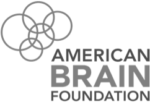Apply Now for the McKnight Clinical Translational Research Scholarship
Funded by the McKnight Brain Research Foundation through the American Brain Foundation and the American Academy of Neurology


The McKnight Clinical Translational Research Scholarship in Cognitive Aging and Age-Related Memory Loss is designed for early-career investigators in clinical studies relevant to age-related cognitive decline and memory loss. The award recognizes the importance of rigorous training in clinical research and encourages early-career investigators to establish future careers in the area of human cognitive aging.
While the focus should NOT be solely on a neurodegenerative dementia (e.g. Alzheimer’s disease), proposals that focus on the combined study of cognitive aging and a neurodegenerative dementia may be considered.
Each award consists of a commitment of $65,000 per year for two years, plus a $10,000 per year stipend to support education and research-related costs for a total of $150,000.
The application window for the 2026 scholarships is open now through September 9, 2025. Recipients will be notified in January 2026.
How to Apply
June 2, 2025: Application window for the 2026 scholarships open.
September 9, 2025: Application deadline.
January 2026: Notification of recipients.
July 1, 2026: Funding begins.
Applications are evaluated by reviewers based on the following criteria:
on applicant’s ability and promise as a clinician-scientist based on prior record of achievement and career plan, letters of reference, and NIH Biosketch
on quality and nature of the training to be provided and the institutional, departmental, and mentor-specific training environment
on quality and originality of the research plan

An annual progress report is due in May of the first year. Renewal of the award in year two is contingent upon presentation of a satisfactory progress report. Additionally, a final research report and a final expenditure report are due within 60 days following the close of the grant term. The final expenditure report must be prepared by the institution’s financial office.
Recent Research

